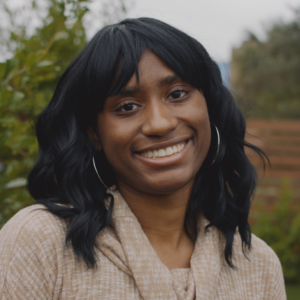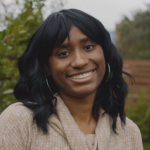 The first time I came out as bisexual was one of the scariest days of my life.
The first time I came out as bisexual was one of the scariest days of my life.
Like a typical Generation Z-er, I came out on social media. I wrote a long Facebook post that was mostly word vomit, but essentially came down to “I’m not straight, I think I’m bisexual, but that may change so don’t hold it against me.” Thankfully, I have a wonderful group of friends and family who were nothing but supportive.
But just because I came out doesn’t make things easier. I still face the typical struggles that the queer community faces with prejudice and discrimination. For example, some queer people (and people of other marginalized groups) have lost out on jobs, housing, and adequate health care because of their identity. For me, I faced struggles that were intertwined with my intersecting identities: bisexual, Black, and female.
It’s gotten better over the years as more Black people have come out, but the fact remains that most of the queer space is represented by white people. There are Black people in the queer community, but they are far and few in between when compared to the white faces you see on screen or in person.
Some places have less representation than others. When I went to my first Pride event in Wilmington, NC a year or so after I came out, I noticed that most of the attendees were white. When I went to my college’s LGBTQIA+ resource center, almost everyone there was white. That’s not uncommon for Wilmington, but it was more than a little disheartening to see a distinct lack of color in queer spaces. The LGBTQIA+ flag may be a rainbow, but in my life, I’ve been surrounded by a sea of white everywhere.
This is not to hate on others in the queer community. I have made wonderful friends who do not share my identity and have proven to be wonderful allies, always willing to learn and stand up for what’s right. I appreciate the people I’ve met in my life who have always looked out for me and supported me – people who prove who my real friends are – and I’ll always be grateful that I met them. That’s not a question in my mind.
But representation does matter, and the lack thereof matters as well. For years, I’ve associated the queer community with white people. I didn’t know any queer Black people growing up, not celebrities nor people in my personal life, and while gender and sexuality are not limited by race, it felt that way more often than not. Even knowing that there are more white people in this country than Black people, seeing even one Black queer person in my childhood would have done wonders for me.
And because I’ve made this association in my mind — that white people are queer and Black people are not — it’s splintered my identities. It feels like being Black and bisexual are separate identities, not ones that can coexist. I can talk about my Black experience, but I can’t talk about my bisexual experience, too. I can talk about my bisexual experience, but I can’t talk about my Black experience with it. This made coming out especially challenging: If my identities were two opposing forces, then it was impossible to be Black and bisexual, right?
It’s hard to live comfortably in my identity as a Black and queer person. It’s hard when I realize that a lot of Black history within the queer movements have been whitewashed in media, or not talked about at all, when in fact we wouldn’t have Pride without leaders of color in the LGBTQIA+ activism space, such as Marsha P. Johnson and Sylvia Rivera. This reinforces my beliefs that I cannot be Black and bisexual at once. It’s hard when there seems to be a distinct hush-hush around queerness in more conservative areas of the Black community (such as some churches). It’s hard not to get the impression that being queer is for white people only.
I don’t know what the exact solution to this problem is, but I know the problem is multifaceted: It’s a lack of representation combined with discrimination, erasure, and sentiment against intersectionality, or how our different identities combine, entirely.
And as I work through fighting discrimination, as I work through fighting my own internalized biphobia and anti-Blackness, it becomes clearer to me that all these problems are related. Being bisexual is not the same as being Black, and we need to acknowledge that, but we also need to acknowledge that prejudice and discrimination are both rooted in hatred. They’re hatred for the unknown and hatred born out of fear of a group that must be “othered” to maintain the status quo. Once we realize that, it becomes easier to see how we must dismantle this faulty thinking, how we must help ourselves untangle these thoughts of hatred and fear that cause so much suffering.
Validating my sexuality and race is a work in progress, but it’s become easier over the years, especially as time goes by and more people in my generation and those beyond speak up about their intersecting identities. As I see more Black people come out in the community—such as Janelle Monaé, Laverne Cox, and Lil Nas X—I start to feel that reconciliation move inside me, combining my splintered parts into one and allowing me to embrace who I truly am.
I’m still learning to reconcile with both of my identities, but I know this is a fact: I am Black, and I am bisexual. That’s not all of who I am, but it is a large part of my identity and how I interact with the world. Nothing can change that.
Women AdvaNCe compiled a list of Pride Month events happening this June! You can check it out here.
 Fairley Lloyd (she/her) is a writer, editor, and bi-con. She writes about race, LGBTQIA+, mental health, and intersectionality.
Fairley Lloyd (she/her) is a writer, editor, and bi-con. She writes about race, LGBTQIA+, mental health, and intersectionality.

This is a beautifully articulated article and I am grateful for its presence in the world. As a white, heterosexual woman, my path has been relatively easy. I know this is not the case for MANY. I wish the world was a different place. Incrementally, people like Fairley Lord make it better.